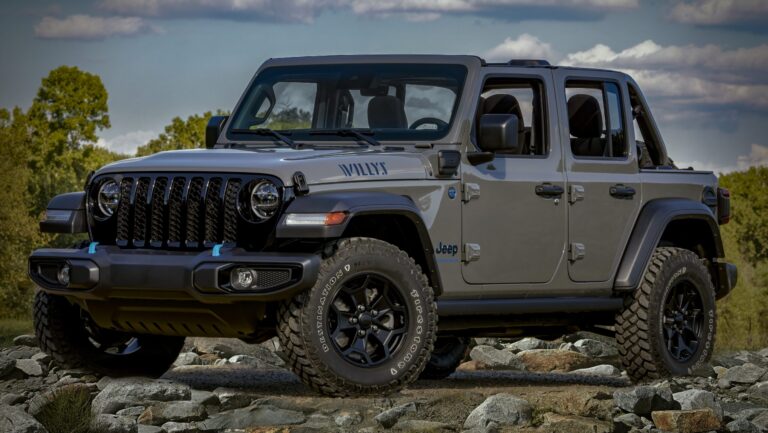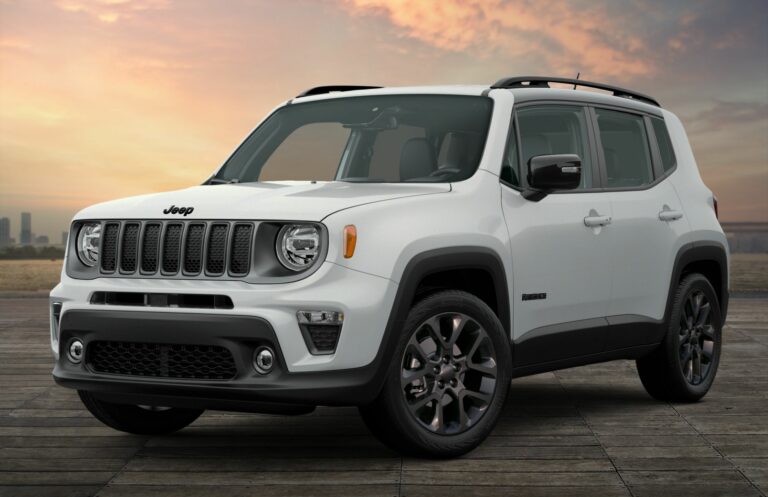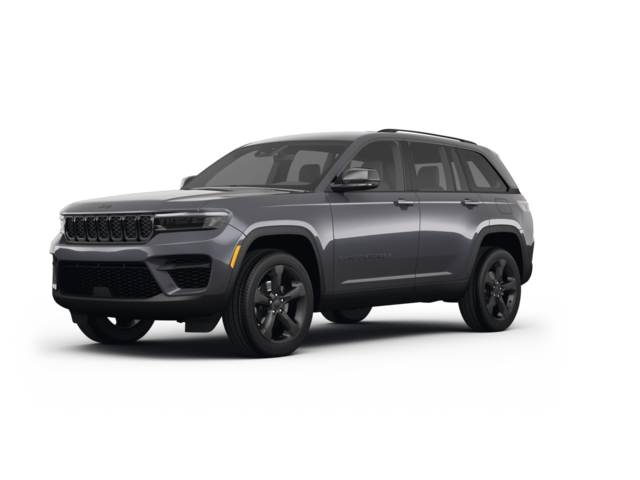2000 Jeep Grand Cherokee Engines For Sale: A Comprehensive Guide to Revitalizing Your WJ
2000 Jeep Grand Cherokee Engines For Sale: A Comprehensive Guide to Revitalizing Your WJ jeeps.truckstrend.com
The 2000 Jeep Grand Cherokee (WJ generation) holds a special place in the hearts of many automotive enthusiasts. Known for its rugged capability, comfortable ride, and distinctive styling, it was a popular choice for families and adventurers alike. While these vehicles were built to last, time and mileage eventually take their toll, and for many WJ owners, the engine becomes the weakest link. When faced with significant engine issues—be it high mileage wear, a catastrophic failure, or simply a desire for renewed performance—the prospect of finding a reliable replacement engine for your 2000 Grand Cherokee becomes a critical consideration. This guide will delve into everything you need to know about sourcing, evaluating, and purchasing a replacement engine, ensuring your beloved WJ can continue its journey for years to come.
Understanding the 2000 Jeep Grand Cherokee Engine Options
2000 Jeep Grand Cherokee Engines For Sale: A Comprehensive Guide to Revitalizing Your WJ
Before you embark on the hunt for a replacement engine, it’s crucial to understand the original powertrain options available for the 2000 Grand Cherokee. Knowing exactly what you need will prevent costly mistakes and ensure compatibility.
- The 4.0L PowerTech Inline-Six (I6): This legendary engine is arguably the most common and revered powerplant for the WJ. Renowned for its incredible durability, simplicity, and ease of maintenance, the 4.0L I6 is a workhorse that can rack up hundreds of thousands of miles with proper care. It offers reliable, albeit not blistering, performance, making it ideal for daily driving and light off-roading. If your 2000 WJ came with the 4.0L, finding a replacement is relatively straightforward due to its widespread use across many Jeep models.
- The 4.7L PowerTech V8: For those seeking more power and towing capability, the 4.7L V8 was the upgrade option. This engine delivers significantly more horsepower and torque than the 4.0L, providing a more spirited driving experience. While generally robust, early versions of the 4.7L, including some from the 2000 model year, could be susceptible to issues like dropped valve seats, leading to significant engine damage if not addressed. Later revisions improved reliability, but it’s a point to consider when evaluating used 4.7L engines.
- The 3.1L VM Motori Diesel (Less Common in North America): While primarily available in international markets, some 2000 Grand Cherokees were equipped with a 3.1L VM Motori turbodiesel engine. These are exceedingly rare in North America and sourcing parts, let alone an entire engine, can be a significant challenge. For the purpose of this guide, we will focus primarily on the more common gasoline engines.
It’s vital to confirm which engine your specific 2000 Grand Cherokee originally had. Check your vehicle’s VIN, owner’s manual, or the engine itself to ensure you purchase the correct replacement. Swapping between the 4.0L and 4.7L is not a direct plug-and-play operation and requires significant modifications to the transmission, wiring harness, ECU, and other components.
Why Replace Your 2000 Grand Cherokee Engine?

Owners opt for engine replacement for several compelling reasons, often weighing the cost against the vehicle’s overall condition and sentimental value.
- High Mileage Wear and Tear: Over time, internal engine components like piston rings, bearings, and valve guides simply wear out, leading to excessive oil consumption, loss of compression, reduced power, and eventually, mechanical failure.
- Catastrophic Failure: Events like thrown connecting rods, cracked blocks, severe overheating leading to head gasket failure, or major internal component breakage can render an engine irreparable or uneconomical to rebuild.
- Cost-Effectiveness: For a well-maintained 2000 Grand Cherokee with a solid body, transmission, and interior, replacing the engine can be significantly cheaper than purchasing a comparable new or used vehicle. It allows you to keep a vehicle you know and trust.
- Restoring a Beloved Vehicle: Many Grand Cherokee owners have a deep attachment to their WJs. Replacing the engine allows them to breathe new life into a cherished vehicle, extending its functional lifespan.

Types of Replacement Engines Available
When searching for a 2000 Jeep Grand Cherokee engine, you’ll encounter different types, each with its own pros, cons, and price point.
- Used Engines (Salvage/Junk Yard):
- Pros: Most affordable option. Readily available.
- Cons: Unknown history, mileage, and internal condition. No warranty or very limited warranty (e.g., 30-90 days). Higher risk of hidden issues.
- Tips: If possible, obtain a compression test report. Inspect for oil sludge, signs of overheating, or external damage. Ask about the donor vehicle’s mileage and accident history.
- Remanufactured/Rebuilt Engines:
- Pros: Thoroughly inspected, disassembled, cleaned, and reassembled with new or reconditioned parts (e.g., pistons, rings, bearings, gaskets, seals). Often come with a substantial warranty (1-3 years, unlimited miles). Offer significantly better reliability than used engines.
- Cons: More expensive than used engines. Requires a "core charge" (a refundable deposit for your old engine).
- Tips: Research the rebuilder’s reputation. Understand the scope of the rebuild (e.g., what components are new vs. reconditioned). Clarify warranty terms and conditions.
- New Crate Engines:
- Pros: Brand new components, full manufacturer’s warranty, ultimate peace of mind.
- Cons: Most expensive option. Less common for older vehicles like the 2000 WJ, though Mopar or aftermarket suppliers might offer new 4.0L crate engines.
- Tips: Confirm availability and lead times. Ensure it’s a direct fit for your model year.

Where to Find 2000 Jeep Grand Cherokee Engines For Sale
- Online Marketplaces: Websites like eBay, Craigslist, and Facebook Marketplace are common places to find used engines from private sellers or smaller salvage yards. Exercise caution and verify seller credibility.
- Specialized Engine Suppliers & Remanufacturers: Companies like Jasper Engines, S&J Engines, and others specialize in remanufactured engines for a wide range of vehicles, including the Grand Cherokee. They offer warranties and support.
- Local Junkyards/Salvage Yards: A great source for used engines, often allowing for direct inspection. Prices can be negotiable.
- Auto Parts Stores: Many major auto parts chains (e.g., AutoZone, O’Reilly Auto Parts, Advance Auto Parts) can order remanufactured engines from their suppliers.
- Mechanic Shops: Your trusted mechanic might have connections with reputable suppliers or be able to source an engine for you as part of an installation package.
Key Considerations Before Buying
Purchasing an engine is a significant investment. Take these factors into account to make an informed decision:
- Compatibility: Double-check the engine code, year, and specific variant (4.0L or 4.7L). Ensure it matches your vehicle’s original specifications.
- Mileage (for Used Engines): Lower mileage is generally preferred, but condition is paramount. A higher-mileage engine with meticulous maintenance history can be better than a lower-mileage one that was neglected.
- Warranty: This is non-negotiable for remanufactured engines and highly desirable for used ones. Understand the duration, coverage (parts only, or parts and labor?), and any exclusions.
- Shipping Costs: Engines are heavy! Shipping can add hundreds of dollars to the total cost, especially for cross-country deliveries. Factor this into your budget.
- Core Charge: Remanufactured engines typically require a core charge. This deposit is refunded when you return your old, rebuildable engine. Ensure your old engine is "rebuildable" to avoid losing the deposit.
- Completeness: Understand what you’re buying. A "long block" is the engine block with cylinder heads, camshafts, and internal components. A "complete engine" typically includes intake manifold, exhaust manifolds, throttle body, fuel injectors, and sometimes accessories like the alternator, power steering pump, and A/C compressor. Prices vary greatly depending on completeness.
- Seller Reputation: Buy from reputable sellers with positive reviews and a track record of good customer service.
- Pre-Purchase Inspection: If buying a used engine locally, consider having a mechanic inspect it before purchase.
Installation & Post-Purchase Tips
- Professional Installation: Unless you are an experienced mechanic with specialized tools, professional installation is highly recommended. It ensures proper alignment, connection of all systems, and adherence to manufacturer specifications.
- Replace Ancillary Components: It’s a false economy to reuse old components on a new or rebuilt engine. Always replace:
- Water pump, thermostat, and hoses
- Spark plugs and ignition coils (if applicable)
- Belts and tensioners
- Engine mounts
- All fluids (oil, coolant, power steering fluid)
- Consider replacing the exhaust manifold gaskets, motor mounts, and oxygen sensors.
- Break-In Procedures: If you purchase a new or remanufactured engine, follow the manufacturer’s recommended break-in procedures to ensure longevity and optimal performance. This typically involves specific oil changes and avoiding heavy loads for the initial miles.
- Regular Maintenance: Once installed, adhere to a strict maintenance schedule. Regular oil changes with quality oil, coolant flushes, and filter replacements will maximize your engine’s lifespan.
Estimated Price Table for 2000 Jeep Grand Cherokee Engines
Please Note: These are estimated ranges as of late 2023/early 2024. Actual prices will vary significantly based on mileage, condition, warranty, seller, completeness (long block vs. complete), and market demand.
| Engine Type | Condition / Type | Estimated Price Range (USD) | Typical Warranty | Key Considerations |
|---|---|---|---|---|
| 4.0L I6 | Used (High Mileage) | $700 – $1,500 | 30-90 days, parts only | Highest risk, inspect thoroughly, budget for extras |
| 4.0L I6 | Used (Lower Mileage) | $1,500 – $2,500 | 90 days – 6 months | Better chance of reliability, still inspect |
| 4.0L I6 | Remanufactured | $2,500 – $4,000 | 1-3 years, unlimited miles | Best value for reliability and peace of mind |
| 4.0L I6 | New Crate (Mopar/Aftermarket) | $4,000 – $6,000+ | 3 years, unlimited miles | Highest cost, ultimate reliability |
| 4.7L V8 | Used (High Mileage) | $800 – $1,800 | 30-90 days, parts only | Higher risk due to potential 4.7L issues |
| 4.7L V8 | Used (Lower Mileage) | $1,800 – $3,000 | 90 days – 6 months | Seek engines from later 4.7L revisions if possible |
| 4.7L V8 | Remanufactured | $3,000 – $5,000 | 1-3 years, unlimited miles | Recommended for 4.7L to mitigate known issues |
Additional Costs to Consider:
- Shipping: $200 – $600+
- Core Charge: $300 – $700 (refundable)
- Installation Labor: $800 – $2,000 (depending on shop rates and complexity)
- Ancillary Parts (water pump, hoses, belts, fluids, etc.): $300 – $800+
Frequently Asked Questions (FAQ)
Q: Can I swap a 4.0L engine for a 4.7L V8 (or vice versa) in my 2000 Grand Cherokee?
A: While physically possible, it is not a direct swap and is highly complex and costly. It requires changing the transmission, engine computer (ECU), engine wiring harness, possibly the radiator, driveshafts, and other components. It’s generally recommended to replace your engine with the same type it originally came with.
Q: What’s the difference between a "long block" and a "complete engine"?
A: A long block typically includes the engine block, crankshaft, pistons, connecting rods, camshaft(s), cylinder heads, and valve train components. It does not include the intake manifold, exhaust manifold, fuel system, accessories (alternator, power steering pump, A/C compressor), or wiring. A complete engine (sometimes called "turn-key" or "drop-in") includes most of these external components, though definitions can vary by seller. Always confirm exactly what is included.
Q: How much does it typically cost to have a 2000 Grand Cherokee engine installed?
A: Installation labor can range from $800 to $2,000, depending on your location, the mechanic’s hourly rate, and the complexity of the specific engine swap (e.g., if many ancillary components also need replacing). Get multiple quotes.
Q: What should I look for when buying a used engine?
A: Look for signs of proper maintenance (clean oil, no excessive sludge). Check for external damage, cracks, or excessive corrosion. If possible, get a compression test. Ask for the donor vehicle’s mileage and VIN for verification. A reputable seller will provide details.
Q: Is it worth replacing the engine in a 2000 Grand Cherokee?
A: Absolutely, if the rest of the vehicle (body, frame, transmission, interior) is in good condition. The 2000 WJ is a capable and comfortable vehicle, and investing in a quality replacement engine is often far more economical than buying a newer used vehicle, especially given the cost of new cars today. It allows you to extend the life of a reliable and familiar vehicle.
Concluding Summary
Finding a replacement engine for your 2000 Jeep Grand Cherokee is a viable and often cost-effective solution to keep your beloved WJ on the road. Whether you opt for a budget-friendly used engine, a reliable remanufactured unit, or a pristine new crate engine, thorough research, careful consideration of the seller’s reputation, and a clear understanding of your vehicle’s needs are paramount. By making an informed decision and ensuring professional installation, you can look forward to many more miles of adventure and reliable service from your revitalized Grand Cherokee. Don’t let engine troubles sideline your WJ; with the right approach, it can continue to be a dependable companion for years to come.







